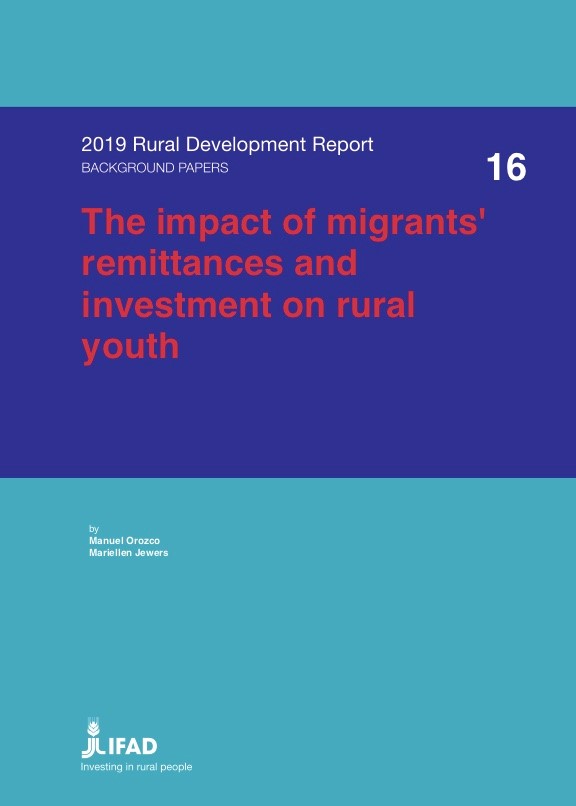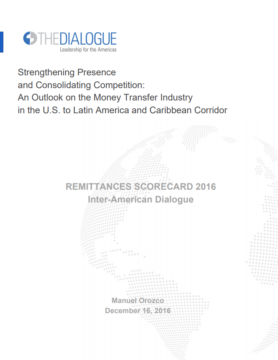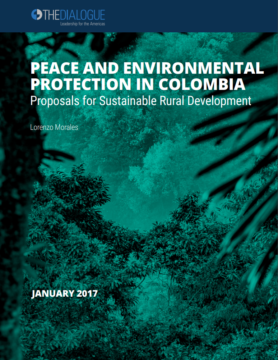
Peace and the Environment in Colombia
Peace in Colombia promises to bring many environmental benefits to the country, but also poses environmental risks .
Manuel Orozco, director of the Migration, Remittances, and Development Program, recently co-authored a report with Mariellen Jewers titled “The impact of migrants’ remittances and investment on rural youth” as a part of the 2019 Rural Development Report for the International Fund for Agricultural Development (IFAD).
The paper released in June 2019 analyzes the positive impact that migrants have on their communities of origin, specifically to the sustainable economic development of rural youth by means of “transnational economic engagement.” The authors identify that this transnational economic engagement can take the forms of “money transfers (family remittances), philanthropy, entrepreneurship, capital investment, homeland goods consumption, and knowledge transfer.” Ultimately, the positive impacts shown in the studies show that remittances can function as a tool for further rural development worldwide.
The report also addresses chapters dedicated to migrant philanthropy and their impacts on rural development, in addition to the effect of remittances. Entrepreneurship, capital investment, and knowledge transfer are analyzed in the context of African diaspora with the African Diaspora Marketplace, a USAID program that provides capital funding for business proposals in Africa. In addition, country studies on Albania and El Salvador provide examples of the impact of nostalgic trade, or the consumption of home country goods.

Peace in Colombia promises to bring many environmental benefits to the country, but also poses environmental risks .
In its fourth edition, the Remittances Scorecard ranks 30 companies working in 11 Latin American and Caribbean countries. It evaluates them across 12 indicators to assess their performance and competition in the money transfer industry.
Colombia should integrate environmental considerations into its rural economic development plans to avoid an increase in deforestation associated with the post-conflict transition.


